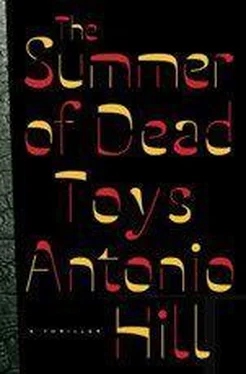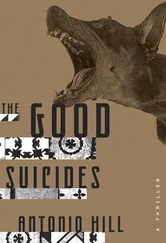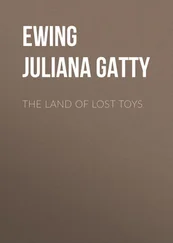Antonio Hill - The Summer of Dead Toys
Здесь есть возможность читать онлайн «Antonio Hill - The Summer of Dead Toys» весь текст электронной книги совершенно бесплатно (целиком полную версию без сокращений). В некоторых случаях можно слушать аудио, скачать через торрент в формате fb2 и присутствует краткое содержание. Жанр: Триллер, на английском языке. Описание произведения, (предисловие) а так же отзывы посетителей доступны на портале библиотеки ЛибКат.
- Название:The Summer of Dead Toys
- Автор:
- Жанр:
- Год:неизвестен
- ISBN:нет данных
- Рейтинг книги:4 / 5. Голосов: 1
-
Избранное:Добавить в избранное
- Отзывы:
-
Ваша оценка:
- 80
- 1
- 2
- 3
- 4
- 5
The Summer of Dead Toys: краткое содержание, описание и аннотация
Предлагаем к чтению аннотацию, описание, краткое содержание или предисловие (зависит от того, что написал сам автор книги «The Summer of Dead Toys»). Если вы не нашли необходимую информацию о книге — напишите в комментариях, мы постараемся отыскать её.
The Summer of Dead Toys — читать онлайн бесплатно полную книгу (весь текст) целиком
Ниже представлен текст книги, разбитый по страницам. Система сохранения места последней прочитанной страницы, позволяет с удобством читать онлайн бесплатно книгу «The Summer of Dead Toys», без необходимости каждый раз заново искать на чём Вы остановились. Поставьте закладку, и сможете в любой момент перейти на страницу, на которой закончили чтение.
Интервал:
Закладка:
“Honestly, I don’t know, Señor Castells.” He elaborated a little about the bloodstained T-shirt and his hunch that something had occurred between the boys that night. He didn’t want to place too much importance on it, but at the same time he knew the victim’s father had a right to be informed. “With regard to the laptop, mobile and other things. . I don’t think we’ll get anything useful out of them but it will help us complete the investigation. They are diaries nowadays: emails, messages, calls. I doubt they’ll clarify what happened but it’s worth giving them a look.”
“I’m afraid you won’t get much information from his laptop. It looked broken.”
“Broken?”
“Yes. I suppose it might have been dropped. I didn’t notice until four or five days afterward.”
Somehow, Enric Castells suddenly felt uncomfortable, so he rose from his chair, signalling that the interview was over. Already at the door, however, he came back to the inspector.
“Take my son’s things if you want. I doubt they’ll give you any answers, but take them.”
“We’ll return them to you as soon as possible. I give you my word.”
Castells’ expression was slightly indignant.
“They’re just things, Inspector,” he said coldly. “In any case, I ask that if you need anything else you contact me at my office. Glòria is very worried about the little one. Natàlia is small, but she notices everything: she’s been asking for her brother and it’s very hard to explain what has happened in a way she can understand.”
Héctor made a gesture of assent and followed him to the corridor. Castells was moving forward, shoulders upright and back ramrod straight. Any trace of weakness had evaporated on crossing the threshold. He was back to being the man of the house: firm, balanced, self-assured. A role, Héctor was certain, that had to be exhausting.
Meanwhile, Leire had remained seated in the lounge, watching how Natàlia finished drawing after drawing before her mother’s tireless admiration. Father Castells had left shortly after Enric and the inspector had shut themselves in his study, and once she’d confiscated the bloodstained T-shirt, she’d sat down on a chair, waiting for them to emerge. For a moment she imagined herself like this, stuck at home on a summer afternoon, contemplating the artistic progress of a little boy or girl, and the idea horrified her. For the umpteenth time since the night before she did the fateful test, she tried to imagine herself with a baby in her arms, but her brain didn’t succeed in forming the image. No. People like her didn’t have children. That-and financial independence-was the basis of her life, of how she conceived it. How she liked it. And now her whole future was tottering because of one careless slip-up. At least, she told herself with a certain satisfaction, the guy had been worth it. . Unfortunately, he wasn’t one of the hot-chocolate boys and he valued his freedom as much as she did. Relative freedom, she thought, since he was a slave to a job that took him all over the continent.
“Look.” The little girl had come over to her and was showing her latest drawing, an indecipherable smudge, to Leire. “It’s you,” she explained.
“Ah. Is it for me?”
Then Natàlia hesitated and her mother spoke for her. “Of course. You are giving it to her, aren’t you?” Leire put out her hand, but the little girl hadn’t decided to give up the drawing.
“No,” she said at last. “A different one.” And she ran to the table in search of another of her works of art. “This one.” “Thank you. And what is it?” asked Leire, although in this one it was more obvious.
“A window. Bad dodo.”
Glòria Vergès went to her daughter. She looked deeply worried.
“She’s taken to calling upstairs that now,” she whispered, turning to the agent. “I suppose she feels it’s bad because he’s not there.”
“Bad,” repeated Natàlia. “Bad dodo.”
“OK, sweetheart.” Her mother crouched down and stroked her straight, shiny hair. “Why don’t you fetch your doll? I’m sure that. .”
“Leire.”
“. . Leire would love to see her.” She threw Agent Castro an apologetic smile and the little girl hastened to obey. “I’m sorry,” said the agent. “I suppose it’s very complicated for her. For everyone.”
“It’s horrible. And the worst is you don’t really know how to explain it. Enric is in favor of telling her the truth, but I can’t. .”
“Was she very attached to her brother?”
Glòria hesitated.
“I would like to say yes, but I’m afraid the age gap was toowide. Marc basically ignored her, and I suppose that’s normal.
But lately, since he came back from Dublin, he seemed to have more affection for her. And now she misses-”
Before she could finish, Natàlia came running in. Somehow that childish noise, so normal in any other house where a child lives, sounded strange. As if the perfect set was tottering. “Natàlia, sweetheart. .”
But the little girl didn’t pay her the least attention, and turned to the table where she was drawing to pick up the bits of paper.
“How tidy!” commented Leire.
“Don’t you believe it. . Now she’ll put them all over my studio.” She smiled. “Since I also ‘go to school,’ as she says, she likes to leave her things on my desk. I’ll go and see what she’s doing before it’s too late.”
Leire, for whom that scene of devout motherhood was becoming unbearable, decided to get up from her chair and wait for the inspector in the car.
There Héctor found her, when he came out weighed down with the box containing Marc’s belongings. Oblivious to his appearance, lost in thought, she was looking at the screen of her mobile as if it were a foreign object, something that had just fallen into her power by magic and was completely indecipherable. He had to attract her attention so she would open the boot. The girl stammered an apology, unnecessary apart from anything else, and put her phone in her pocket.
“Are you feeling all right?” he asked her.
“Of course. I see you managed to convince Castells.” The desire to change the subject was so obvious Héctor
didn’t persist. He looked at his own mobile before getting into the car: three missed calls. Two from Andreu and one from his son. At last. He didn’t want to respond to any of them in front of Castro, and so he decided to go as far as Plaça Bonanova and then go his own way.
“Bring all this to the station. I have some stuff to do,” he said as he got into the vehicle. “By the way, the laptop is broken. You didn’t see it the day you were there?”
Leire was doubtful. She’d spent most of the time below, witnessing the removal of the corpse.
“In fact,” she said finally, “we didn’t see any laptop. There was the desktop in the attic and it was examined to see if Marc had left any message on it, something that could be interpreted as a suicide note. There was nothing. And at no time did anyone mention that he had another computer.”
Héctor nodded.
“Well, he had one. In his room, I suppose.” He didn’t say anything else, and the notion that they hadn’t done a thorough job hung in the car’s interior. The inspector noticed it, so before he got out, he commented, “I don’t think it will give us anything. It’s still most probable that the boy fell accidentally. We’ll analyse the T-shirt and see what comes from that. Oh, and when we have something we’ll have to speak to the other boy, this Aleix Rovira. But at the station. I’m sick of visiting these brats at home.”
“Good. Sure you want me to leave you here?”
“Yes, I’ll take the opportunity to run some errands,” he lied. And given that it was already almost nine o’clock, it was obvious there were few errands that could be run. “I’ll see you tomorrow.” He was going to ask her again if she was all right, but stopped himself. Castro’s affairs weren’t any business of his. “Good night.”
Читать дальшеИнтервал:
Закладка:
Похожие книги на «The Summer of Dead Toys»
Представляем Вашему вниманию похожие книги на «The Summer of Dead Toys» списком для выбора. Мы отобрали схожую по названию и смыслу литературу в надежде предоставить читателям больше вариантов отыскать новые, интересные, ещё непрочитанные произведения.
Обсуждение, отзывы о книге «The Summer of Dead Toys» и просто собственные мнения читателей. Оставьте ваши комментарии, напишите, что Вы думаете о произведении, его смысле или главных героях. Укажите что конкретно понравилось, а что нет, и почему Вы так считаете.












